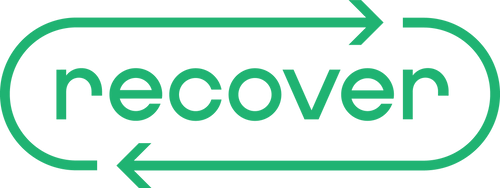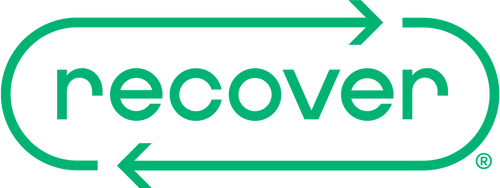
Inside Recover: Carbon Offset Program
Recover is a company that is driven to be part of the solutions to today’s most pressing challenges, rather than part of the problem.
Carbon offsets can be confusing. How do you “offset” carbon emissions and why would you? Here is the rundown… Basically, while technological innovations in recent centuries greatly advanced industry and transportation, many have also resulted in a significant increase in the amount of carbon dioxide and other greenhouse gases in the atmosphere. This increase is causing more severe and frequent drought, flooding, hurricanes, and worldwide reduction of freshwater. While the average global temperature is rising at an unprecedented rate, some areas such as the Arctic and Antarctic are experiencing warming effects two to three times greater than the rest of the world, and simultaneously, other areas have become cooler as a result. Some experts now informally refer to global climate change as ‘global weirding,’ rather than ‘global warming,’ to describe this increasing challenge that is having impacts worldwide.
The U.S. produces over 14% of the world’s carbon emissions (although we only make up 4% of the world’s population), and has the highest annual per capita carbon emissions in the world (16.1 tonnes, compared to France’s 5.1 tonnes, and Nigeria’s 0.5 tonnes). In engaging in a solution, Recover figures it’s best to start locally with our own business and individual practices and expand globally by connecting with key partners who are affecting positive change.
From the beginning, Recover has considered and prioritized efforts to reduce carbon emissions in the sourcing, production, and distribution of our 100% recycled sustainable apparel. We are always looking for ways to do better. Establishing our partner facilities in Haiti and Guatemala geographically reduces Recover’s transportation-related carbon emissions significantly compared to making the mainstream choice of partnering with facilities in Asia. Last fall, Recover took carbon emission reduction a step further with the launch of the Recover Local line of new shirts, beanies, and socks, which are 100% made in the Carolinas. Recover Local sources all materials and production within a mere 150-mile radius of our headquarters in Charlotte, creating significantly reduced carbon emissions.

Extending account of the pressing global issue beyond all of our internal choices, this winter, we launched the Recover Carbon Offset Program. The Recover Carbon Offset Program is our way of externally cultivating impact through collaboration with conscious and driven partners. Through this program, we not only offer tees at a reduced price to partners, we also donate 20% of all proceeds to CarbonFund.org.
CarbonFund.org is a climate change education and outreach nonprofit that provides contributions to transparent carbon offset projects, such as reforestation work and renewable energy for businesses and individuals.
Through the Recover Carbon Offset Program, we partner with CarbonFund.org to provide support for the Envira Amazonia Project. Located within the heart of the Brazilian Amazon, the Envira Amazonia project will preserve over 494,000 acres of a rare and endangered tropical rainforest ecosystem, while simultaneously providing the local community with a new school and major educational programs, a new health clinic, land title, and direct payment for forest conservation. Currently, the area is dangerously threatened by domestic and international land use pressures. The goal of the project is to mitigate deforestation and preserve the rich biodiversity of the region, while simultaneously generating sustainable economic and education opportunities.
The Envira Amazonia Project is an example of a worldwide initiative and movement to provide direct payment for the immeasurable ecosystem services that wild and natural places produce for human and community health and sustainability. Forests provide water storage and filtering, wildlife habitat, global carbon sequestration, and natural resources for local communities; however, international pressures for cash crop farms, ranching operations and timber products have spurred severe deforestation worldwide. Initiatives such as the Envira Amazonia Project take concrete action to mitigate climate change, which we find not only inspiring, but necessary.
Carbon offsets are a key piece in the picture of acting for a solution to this problem that we all need to work together to solve. Carbon offsets as a whole are diverse investments in projects that effectively act in some way to reduce the amount of carbon dioxide or other greenhouse gases in the atmosphere. This can be anything from reforestation projects such as Envira Amazonia, to projects that reduce emissions from cars, large truck and plane transportation (an enormous contributor to climate change), to biomass, wind and solar energy projects (which have far less emissions than coal-burning power plants). One carbon offset represents the reduction of one metric ton of carbon dioxide or its equivalent in other greenhouse gases.
Everyone is working hard to address the issue of global climate change. Individuals are changing habits and choices, such as using less energy in homes by turning off lights, riding bikes or taking public transportation to work, and supporting companies and policies that are taking action. Innovative companies are investing in using biomass, solar, and wind energy and making transportation more efficient by developing local business models. But- climate change is an enormous global challenge and, while these efforts are growing, it is also crucial for all of us to take it on from multiple angles.
There’s a lot going on out there. Rather than be overwhelmed, the only thing we can do is be inspired to take the actions that drive us where we want to go instead of in the opposite direction. Learning as much as we can, and recognizing that every one of our choices matter today is what will build a sustainable tomorrow.









